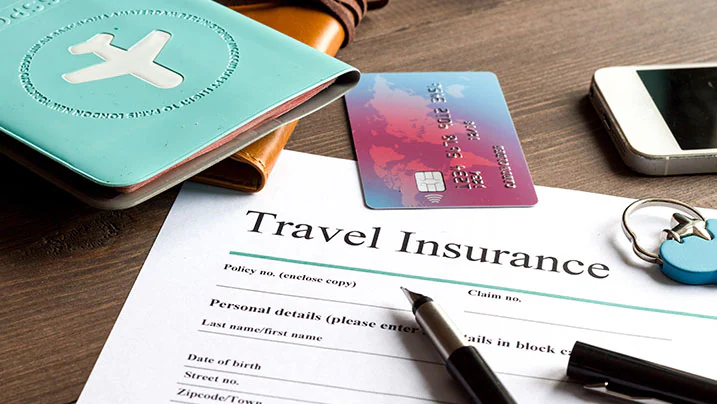Are you planning your next adventure yet? Travel insurance is a must-have for anyone planning a trip, whether it’s a weekend getaway with friends or a month-long expedition across continents. Most travelers ignore this step because they think it is an unnecessary expense or that there’s no way anything could go wrong. Understanding what your travel insurance covers, and when to use it, can save you thousands and save you a lot of stress.
Travel insurance is a safety net that protects you against various risks, which can arise before or during a trip. Travel insurance can cover a wide range of situations, from medical emergencies abroad to flight cancellations or lost luggage. It’s important to know what kind of coverage you require and when purchasing a policy makes financial sense.
Understand the Basics of Travel Insurance
Travel insurance protects travelers against financial losses resulting from their trip. Travel insurance addresses the risks that are unique to being away from home. It is different than your regular health coverage, which might have limited coverage overseas, or your homeowner’s insurance.
Travel insurance is usually purchased in either annual plans or single-trip policies. Single-trip plans cover a single journey, from the point of departure to the return trip. Annual plans offer coverage for several trips during the year. Costs range from 4% up to 10% of the total cost of your trip, depending on age, destination, and trip length.
There are two types of travel insurance: the basic policy that covers trip interruptions and cancellations and the comprehensive policy that covers medical expenses, evacuation in an emergency, and other benefits. Your specific needs, your risk tolerance, and the nature of your travel will determine which type you select.
Why Travel Insurance is Important
The timing of your purchase is critical to maximizing the benefits. It is best to purchase travel insurance within 14-21 days after making the initial deposit on your trip. You’ll be eligible for benefits such as pre-existing condition waivers and other time-sensitive features.
Travel insurance is a must if you are traveling abroad, especially if your health insurance only covers a limited number of countries. Emergency medical evacuations can cost thousands of dollars, and medical treatment abroad is expensive. Travel insurance will protect your investment, even if it’s a large non-refundable deposit.
Travelers who have pre-existing conditions, or those planning to do adventure sports like skiing or diving, or anyone travelling during hurricane season, or in areas of political instability, should carefully consider their travel insurance options. Travel insurance is also important for travelers over 65 due to the higher medical costs and risks abroad.
Travel Insurance Types
Travel insurance is not a product that fits all. Travel insurance comes in different types to cover the various risks that you may encounter. The trip cancellation and interruption insurance reimburses non-refundable costs for trips that are cancelled or cut short due to covered circumstances such as illness, injury, or the death of a loved one.
Travel insurance that covers emergency medical care, hospitalization, and prescription medication is often the most important. It is important to have international coverage, especially if you are traveling abroad. Your domestic health insurance may be inadequate for overseas travel. Emergency medical evacuation insurance pays for transportation from your home country to the nearest medical facility, or to another one.
The coverage for luggage and personal effects protects you against damage, theft, and loss of your belongings. Airlines do compensate for lost luggage, but it is often not enough to cover valuables or the contents of your bag. Travel delay insurance reimburses you for additional expenses such as meals and accommodations if you are delayed by covered factors like mechanical or weather problems.
Benefits of Travel Insurance
Travel insurance provides peace of mind. You can enjoy your vacation without worrying about the worst-case scenario. Many travelers find that the psychological benefits alone are worth the cost.
The most tangible benefit is financial protection. Emergency evacuation in remote areas can cost more than $100,000. Medical emergencies can be expensive abroad. Travel insurance limits your out-of-pocket expenses and guarantees you get the necessary care, regardless of price. Cancellation coverage is a great way to protect your investment in expensive trips if you have to cancel due to unexpected circumstances.
Travel insurance provides 24/7 assistance. Many policies offer 24-hour assistance services staffed by experts in travel who can guide you through emergencies, help locate medical facilities and arrange emergency transport, or help replace important documents. These services can be extremely helpful when dealing with stressful situations abroad.
What to Consider When Choosing a Travel Insurance Plan
To choose the best travel insurance, you must carefully evaluate your needs and circumstances. Assess your current coverage, including that provided by credit cards and health insurance. Some credit cards provide travel protection, while your health insurance may only cover certain international destinations. Knowing what coverage you already have, you can avoid paying for duplicate protection.
Plan your trip and destination. Traveling to developed countries that have good mexcellental facilities will require different coverage from trips to remote regions with limited healthcare infrastructure. Mountain climbing and extreme sports like extreme sports or mountain climbing often require special coverage or riders on standard policies.
Examine the exclusions of your policy carefully. Exclusions can include pre-existing conditions (unless waived), travel to certain countries, and alcohol or drug-related claims. Before purchasing, make sure you know what’s covered.
Compare the coverage limits and deductibles of different policies. The higher the coverage limit, the more expensive it is, but you get better protection in case of serious accidents. Some policies limit coverage per incident, while others aggregate the limits for your entire trip. Select limits that protect you from your exposure.
Make the Right Decision.
Travel insurance is a relatively inexpensive investment that can help you avoid major financial losses and give you peace of mind while on your trip. Understanding when and how you can use travel insurance will help you make an informed decision about protecting both your investments in travel and your health.
Travel insurance is a good idea for those who are planning expensive international trips, adventure travel, or have health concerns. Travel insurance is often a good investment for travelers who are taking expensive trips abroad, traveling on adventure tours, or have health issues. Basic protection may be sufficient for simple domestic trips or travelers who already have excellent coverage.
Take the time to review your travel insurance requirements before your next trip. Take into account your destination, the activities you plan to do, any existing insurance, and possible financial exposure. With a little research and an affordable insurance premium, you can turn potential travel disasters into minor inconveniences. This will allow you to concentrate on making memories instead of worrying about what could go wrong.
FAQs
1. Can you cancel a trip due to fear?
Standard travel insurance policies do not usually cover cancellations caused by fear or anxiety. Coverage is usually limited to objective, specific reasons, such as sickness, injury, death of a family member, or travel advisories. Policies that allow cancellation for any reason are more flexible but also cost more.
2. Does my health insurance cover me when I travel internationally?
Most domestic health plans cover medical expenses abroad only to a limited extent or not at all. Even if there is some coverage, it might not cover emergency medical evacuations, which can be very costlyore traveling, check with your insurer about coverage for international travel.
3. Does travel insurance cover pre-existing conditions?
Standard travel insurance policies do not cover pre-existing conditions. Many insurers will waive pre-existing conditions if you buy your policy within a certain timeframe (usually between 14 and 21 days after your first trip deposit) and meet other requirements.
4. What is the difference between trip interruption and trip cancellation coverage?
Trip cancellation coverage reimburses non-refundable trip costs if you must cancel before departure due to covered reasons. If you have to cut short your trip after it begins, trip interruption coverage reimburses both the unused costs of the trip and any additional expenses for returning home early.




